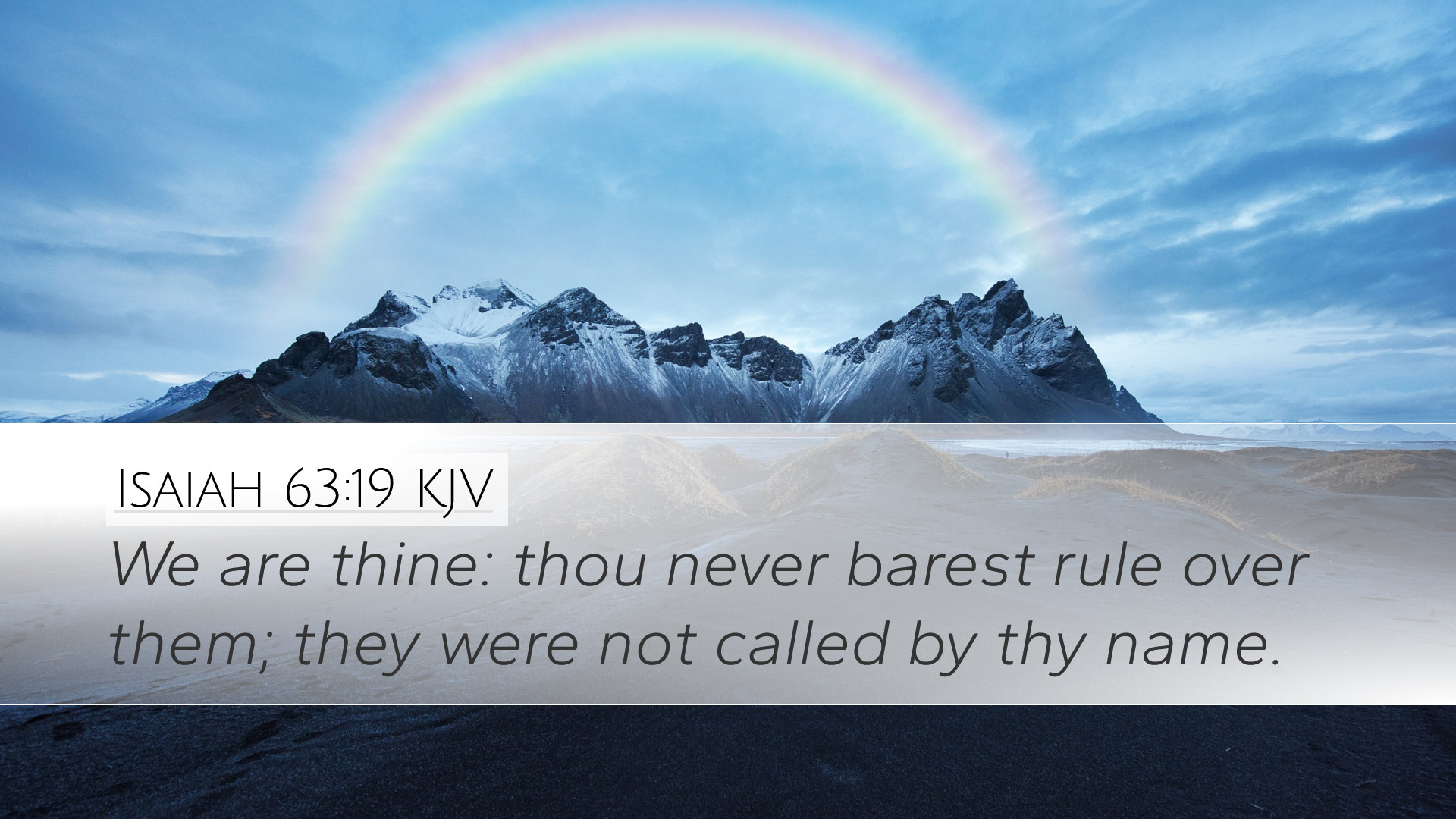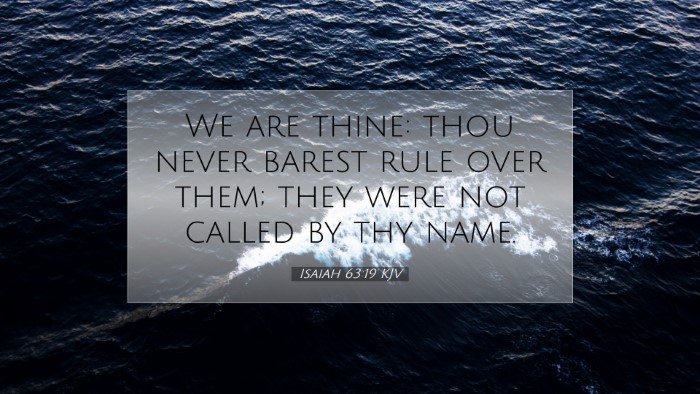Commentary on Isaiah 63:19
Isaiah 63:19 reads: "We are thine: thou never barest rule over them; they were not called by thy name." This poignant declaration reflects the deep lamentation of the Jewish people during a period of suffering, isolation, and divine longing. The complexities of this verse invite spiritual reflection and theological consideration particularly relevant to pastors, students, theologians, and Bible scholars.
Contextual Overview
The Book of Isaiah is rich in prophetic content, predominantly addressing the themes of judgment, hope, and restoration. Isaiah 63 finds itself amid a backdrop of national despair as the Israelites contemplate their relationship with God post-exile. The prophets of old often acted as intermediaries, relaying the heart of God to a wayward people. Isaiah expresses this duality: while the people wrestle with their own unfaithfulness, they yearn for a deep revival and return to covenant fidelity.
Understanding the Lament
This particular verse communicates a profound recognition of identity and belonging. As indicated in the commentaries, the phrase "We are thine" demonstrates the people’s acknowledgment of their relationship with God although stained by a history of disobedience. Matthew Henry notes that this relationship is not merely of possession but encompasses covenant commitment; God has claimed Israel as His own.
The Divine Sovereignty
The latter part of the verse, "thou never barest rule over them; they were not called by thy name," suggests a disruption in the divinely ordained order. The acknowledgment of God’s sovereignty brings forth a complex theological discussion concerning human agency. Albert Barnes states that while God is their rightful ruler, the people's actions have led them to a state of rebellion where they do not experience His governance over their lives. This underscores the tension within divine sovereignty and human responsibility.
- Human Rebellion: The verse implies a choice made by the people to stray from God's authority.
- The Consequence of Disobedience: By rejecting God, they found themselves outside His rule and guidance.
Theological Implications
Adam Clarke introduces an interesting perspective regarding the term "not called by thy name." He argues that this signifies a departure from the divine relationship, where God's name symbolizes His essence and character. When people do not reflect His name, they essentially forfeit the privileges associated with being His people.
Israel’s Unique Identity
Throughout scripture, the people of Israel are called by the name of the Lord. In this context, the lack of identification with God's name implies separation and loss of identity. This carries heavy implications for the understanding of God's chosen people. The public domain commentaries elaborate on how when individuals or nations reject God, they risk losing their identity and the intent of their divine calling.
The Call to Return
The verse does not conclude on a note of hopelessness but rather invites reflection on the need for repentance. The yearning expressed in "We are thine" indicates a desire for restoration. This communal cry adheres to a broader biblical theme, where God consistently calls his people to return to Him for healing and restoration. The importance of repentance is emphasized as a pathway back to a rightful relationship and identity.
Application for Today
For modern-day readers—pastors, theologians, and laypersons—the themes of identity, sovereignty, and the need for repentance in Isaiah 63:19 resonate profoundly. In a world where many grapple with spiritual identity and existential questions, this scripture serves as both a warning and a call to action.
- Affirming Identity in God: Believers today can find solace in the declaration "We are thine." Understanding oneself as belonging to God shapes the way individuals view themselves.
- Living Under Divine Authority: The call to abide in the sovereignty of God invites challenges that demand faith and resilience amidst trials.
- A Call to Repentance: The ongoing need for repentance remains at the heart of Christian life; believers are perpetually invited to return to God, reaffirming their commitment.
Conclusion
Isaiah 63:19 serves as a mirror reflecting humanity's struggle with faithfulness and identity in relation to God. Through the insights provided by public domain commentators, this verse transcends its ancient context and speaks powerfully into contemporary faith narratives. It implores the faithful to acknowledge their belongingness to God, submit to His rule, and actively seek reconciliation through repentance.


